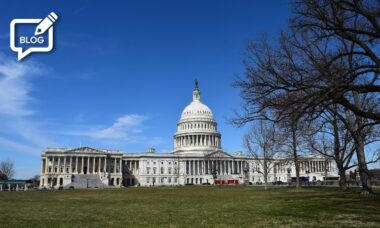 Could the cannabinoid industry learn anything from the recent move to close the loophole that had kept synthetic nicotine out of US Food and Drug Administration (FDA) oversight?
Could the cannabinoid industry learn anything from the recent move to close the loophole that had kept synthetic nicotine out of US Food and Drug Administration (FDA) oversight?
Congress acted surprisingly quickly to clarify ambiguous legislation that had allowed vaping companies to continue to sell products without a premarket tobacco product application (PMTA) if they were made using synthetic nicotine as this made them technically not tobacco-derived products.
Now, Washington DC law firm Patrick Malone & Associates has suggested that similar (relatively) rapid action could be taken at the federal level to clarify regulation of intoxicating cannabinoid edibles and that such a move could have a larger blowback for the industry, resulting in future prohibition or severe restrictions.
Many of the same fears that drove the change in regulation on synthetic nicotine and the related movement to prohibit or severely limit flavours in vaping products are also being voiced for cannabinoid edibles.
Some people fear edibles are too attractive to young users. Additionally, edibles are harder for authority figures to police in comparison to smoking or even vaping. And intoxicating edibles also run a risk of overconsumption as they can take some time to kick in, with impatient users ingesting too much in the intervening period, the law firm says.
As a result, state and federal regulators could bring in further restrictions – particularly as age restrictions tend to not really work because kids can often find workarounds, Malone’s firm adds.
Jumping through hoops trying to close loops
Regulators are clearly unhappy that many intoxicating hemp products meet the letter of the law while, they say, they do not follow its spirit. This has led to widespread further lawmaking to try and close loops, resulting in mixed outcomes, as it is a difficult area to define legislatively. How do you prohibit intoxicating products without accidentally barring other products that should be permitted?
The matter is further confused with the cannabis lobby increasingly looking to support efforts to clamp down on what it sees as a rival product that does not have to undergo the same level of licensing and checks – with the associated costs and assumed higher safety levels that go with that. This is also an interesting contrast with the influence of Big Tobacco, which, despite also engaging in heavy lobbying activity, is perhaps a spectral reason why fears of synthetic nicotine are higher and Congress has taken action.
However, the argument also misses some key points. Cannabis obviously remains illegal at the federal level. Meanwhile, hemp-derived cannabinoids should not be permitted in food, according to the FDA’s interpretation of the Food, Drug, and Cosmetics Act.
This has put states in an odd position when it comes to regulating ingestible cannabinoid products. Some have chosen to specifically allow only what is permitted by the FDA (which is nothing at the moment and for the foreseeable future), while others have created independent systems for cannabis edibles and hemp-derived ingestibles. Recreational cannabis regimes tend to already have something like minimum purchasing age requirements – meaning that some of those worries are really more a matter of enforcement rather than legislation, and perhaps suggesting that a simple age gate on intoxicating hemp products may be the best way to deal with that issue.
Nonetheless, a wider point remains. Many did not expect the federal government to act so fast (for a legislative body) on synthetic nicotine, and others did not think the government would address it at all. The same could happen for hemp-derived intoxicating ingestibles – the difficulties in crafting a law to match nuances notwithstanding.
The continued rise of delta-8, delta-9 and other hemp-derived intoxicating products will bring greater legislative scrutiny. What that means for the industry as a whole, and what might be knocked out as part of the process of regulating them, remains to be seen.
– Freddie Dawson CBD-Intel staff
Photo: Robert Jones
- Want to know more about the US cannabis regulations? You can download a free sample of our regulatory report “US state-by-state taxation of medical cannabis” using the form at the top of this page.






